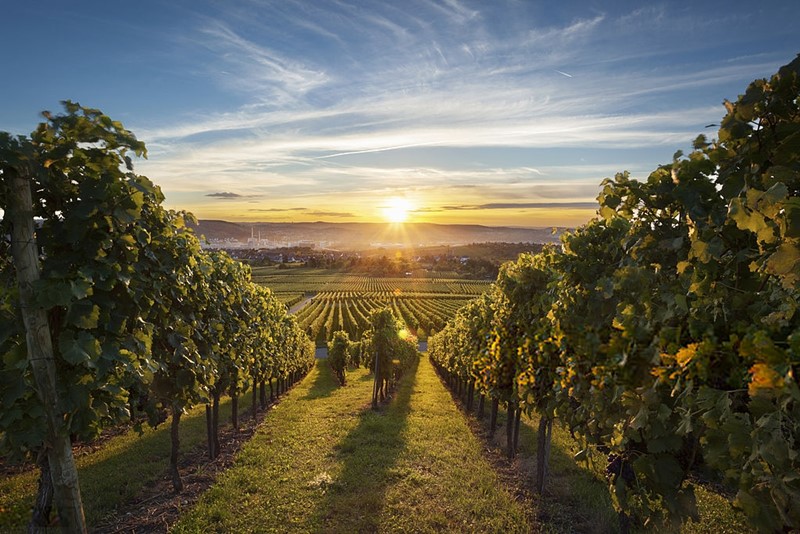
As we swirl, sniff, and sip our way through the diverse world of wines, it's easy to get lost in discussions about grape varieties, aging processes, and the skill of the winemaker. Yet, there's an unsung hero in the narrative of every bottle: the soil. This complex mixture of minerals, water, air, and organic matter forms the bedrock of viticulture, quite literally. Today, let's uncork the fascinating relationship between the soil and the liquid art it helps produce.
Soil is not just dirt. It's a living, breathing entity that cradles the roots of the vines, offering them a buffet of nutrients, water, and oxygen. But it's not just about sustenance; the soil imprints its character on the wine, influencing its texture, aroma, and flavor profile. The dialogue between the vine and its environment, terroir, is a concept we love to romanticize, and rightly so. Soil plays a starring role in this complex interplay.
The Composition of Soil: A Viticultural Symphony
In the realm of viticulture, soils are as diverse as the wines they nurture. From the sandy beaches of Bordeaux's Pessac-Léognan to the volcanic ashes of Mount Etna's vineyards, the composition of the soil varies dramatically. This variation is not random but a result of countless factors, including geological activity, climate, and even the work of local flora and fauna.
The soil is divided into organic and inorganic parts, with the former derived from decomposing plant and animal matter. This organic component, though small in percentage, is mighty in influence, contributing to the soil's ability to retain moisture and nutrients. Humus, the dark, nutrient-rich part of the soil, plays a vital role in feeding the vines, despite the fact that many essential nutrients are not readily available in forms the vine can use.
Minerals, the building blocks of the inorganic part, come from the erosion of rocks, offering a buffet of elements like nitrogen, potassium, and phosphorus, which are vital for vine health. Yet, the soil's pH can make or break the availability of these nutrients. Too acidic, and the soil may leach away vital ions, or worse, release toxic ones like aluminum. Viticulturists often apply amendments to balance the pH, ensuring the vines have access to the nutrients they need.
The Soil's Influence on Wine Quality: A Debate Uncorked
The impact of soil on wine quality is a topic ripe with debate. While some argue that the mineral content of the soil can be tasted in the wine (think of the flinty notes in a Chablis), others suggest the soil's role is more about water and nutrient management. Regardless of the stance, there's no denying that different soil types create distinct growing conditions that influence the character of the wine.
For instance, sandy soils offer excellent drainage, stressing the vines just enough to produce highly aromatic wines. Clay, on the other hand, retains water, which can result in richer, more voluptuous wines. Limestone, with its unique ability to reflect light and retain moisture, is celebrated for producing wines with remarkable finesse and aging potential.
Soil Fertility: The Delicate Dance of Nutrition
Fertility is about more than just the soil's nutrient content; it's about how these nutrients are presented to the vine. A soil too rich may lead to vigorous vine growth at the expense of fruit quality, while a soil too poor might not support vine growth at all. The best soils for viticulture strike a balance, offering enough nutrients to sustain the vine while still encouraging it to invest in its fruit.
The viticulturist's role is akin to that of a conductor, orchestrating the delicate balance of soil health to ensure the vines perform at their best. Through practices like cover cropping, composting, and careful irrigation management, viticulturists can enhance soil fertility, promoting the health of the vineyard ecosystem.
As we peel back the layers of soil's influence on wine, it becomes clear that this complex matrix of minerals, organic matter, and microorganisms is much more than a mere foundation. It's a dynamic, living entity that shapes the essence of wine. So, the next time you enjoy a glass, remember to toast to the soil, the silent composer of the symphony in your glass.
Founded in 2007, Vinetur® is a registered trademark of VGSC S.L. with a long history in the wine industry.
VGSC, S.L. with VAT number B70255591 is a spanish company legally registered in the Commercial Register of the city of Santiago de Compostela, with registration number: Bulletin 181, Reference 356049 in Volume 13, Page 107, Section 6, Sheet 45028, Entry 2.
Email: [email protected]
Headquarters and offices located in Vilagarcia de Arousa, Spain.